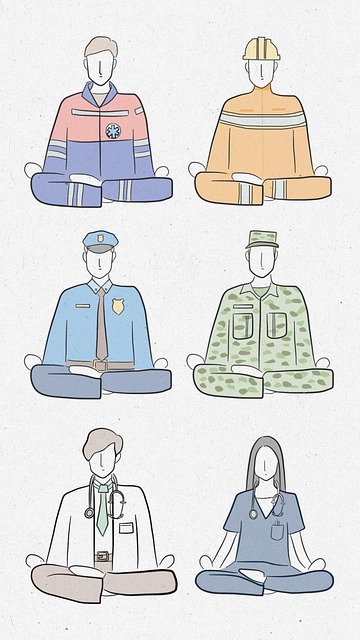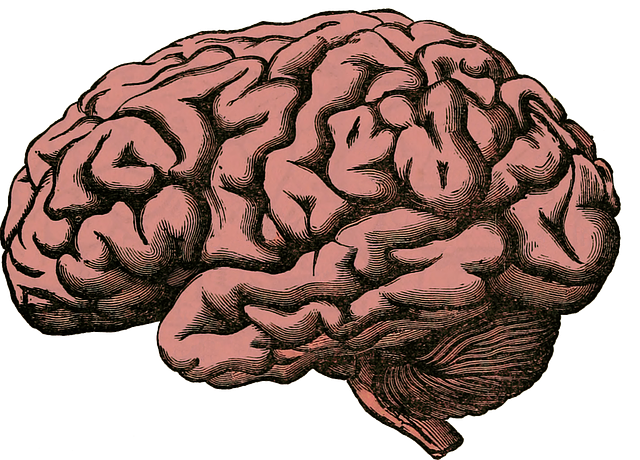Longmont Domestic Violence Therapy prioritizes mental wellness, addressing trauma, anxiety, and PTSD to empower victims. Culturally sensitive therapists tailor conflict resolution techniques for trust-building. Inner strength development fosters resilience, self-confidence, and coping mechanisms, enabling dignified escape from abuse. Holistic care includes group therapy, community resources, and evidence-based trauma support, reducing stigma and promoting emotional ownership. Individualized approaches in safe environments equip clients with tools to navigate life's challenges proactively, enhancing long-term mental wellness.
In Longmont, addressing mental wellness is paramount, especially among domestic violence victims. This article explores strategies to enhance resilience and recovery through targeted interventions. We delve into the transformative power of therapy in helping survivors navigate their trauma. Additionally, we highlight the significance of creating supportive environments and integrating community resources for holistic care. By empowering individuals to take control of their mental health journey, Longmont domestic violence therapy can foster sustainable well-being.
- Understanding Mental Wellness and Its Impact on Domestic Violence Victims in Longmont
- The Role of Therapy in Promoting Healing and Resilience
- Creating a Supportive Environment for Vulnerable Populations
- Integrating Community Resources for Holistic Care
- Empowering Individuals to Take Control of Their Mental Health Journey
Understanding Mental Wellness and Its Impact on Domestic Violence Victims in Longmont

In Longmont, understanding mental wellness is paramount when addressing domestic violence victims. Mental wellness encompasses emotional, psychological, and social well-being, which are often severely disrupted in situations of abuse. Victims of domestic violence may experience trauma, anxiety, depression, and post-traumatic stress disorder (PTSD), among other mental health challenges. These conditions can significantly impair their ability to escape abusive relationships, make informed decisions, and rebuild their lives. Therefore, Longmont domestic violence therapy services that prioritize mental wellness are crucial in helping victims heal and move forward.
Cultural sensitivity in mental healthcare practice plays a vital role in supporting these individuals. Domestic violence affects people from diverse backgrounds, and cultural norms can influence how victims perceive and respond to abuse. Therapists who incorporate conflict resolution techniques tailored to individual cultural contexts can foster trust and encourage victims to share their experiences openly. Additionally, focusing on inner strength development helps victims cultivate resilience, self-confidence, and coping mechanisms, empowering them to break free from abusive cycles and rebuild their lives with dignity.
The Role of Therapy in Promoting Healing and Resilience

Therapy plays a pivotal role in promoting mental wellness and fostering resilience among individuals facing various challenges, including those who have experienced domestic violence in Longmont. Through structured sessions, therapy provides a safe and non-judgmental space for clients to explore their emotions, uncover underlying issues, and develop healthy coping mechanisms. By delving into past traumas and current stressors, therapists help individuals gain insights into their behaviors and thought patterns, enabling them to challenge negative narratives and cultivate positive thinking.
The process of therapy empowers clients to build resilience by teaching them effective strategies to manage stress, anxiety, and depression. It encourages self-awareness, enhances communication skills, and promotes healthy relationships, all of which are essential for long-term mental wellness. For those recovering from domestic violence, therapy serves as a powerful tool, offering not just healing but also the ability to rewrite traumatic experiences, break free from harmful cycles, and embrace a future filled with hope and self-care.
Creating a Supportive Environment for Vulnerable Populations

Creating a supportive environment is vital when it comes to promoting mental wellness, especially for vulnerable populations like those experiencing domestic violence. Longmont Domestic Violence Therapy emphasizes the importance of safe spaces where individuals can openly discuss their traumas and begin their healing journey. This involves implementing strategies that foster trust and encourage vulnerability. For instance, group therapy sessions with trained facilitators can offer a sense of community and understanding, enabling participants to share their experiences without judgment.
By incorporating self-awareness exercises and emotional well-being promotion techniques, these supportive environments can help individuals develop coping mechanisms and build resilience. This is particularly crucial for healthcare providers who often deal with high-stress situations, as burnout prevention strategies are essential to ensure they can continue offering quality care. These environments aim to normalize conversations about mental health, reduce stigma, and ultimately empower individuals to take charge of their emotional well-being.
Integrating Community Resources for Holistic Care

Integrating community resources is a vital strategy for providing holistic care and enhancing mental wellness. Longmont Domestic Violence Therapy, for instance, can benefit greatly from connecting individuals with local support services tailored to their unique needs. This approach ensures that clients receive not just therapeutic intervention but also practical assistance in addressing various aspects of their lives affected by trauma or stress. By collaborating with community organizations focused on housing, employment, and social services, therapists can offer a comprehensive framework for recovery.
Cultural sensitivity in mental healthcare practice is a key component of this integration. Understanding the diverse cultural backgrounds of clients allows providers to adapt their approaches, ensuring effective communication and building trust. This sensitivity fosters an environment where individuals feel empowered to share their experiences, seek help, and engage actively in their therapy journeys. Additionally, trauma support services within the community play a crucial role in healing by providing specialized care for those who have experienced adverse events, offering evidence-based practices like cognitive behavioral therapy and eye movement desensitization and reprocessing (EMDR).
Empowering Individuals to Take Control of Their Mental Health Journey

In today’s fast-paced world, taking charge of one’s mental health is more crucial than ever. Longmont Domestic Violence Therapy emphasizes the power of empowering individuals to become active participants in their journey towards mental wellness. By providing a safe and supportive space, therapy sessions equip people with the tools necessary to navigate life’s challenges. This includes techniques for stress reduction methods and self-esteem improvement, enabling clients to build resilience and enhance their overall well-being.
Through individualized approaches, therapists help individuals unlock their potential, fostering a sense of agency. By learning effective coping strategies, one can take control, ensuring they actively manage their mental health. This proactive mindset is key to preventing and mitigating the impact of stress and anxiety, allowing for a more fulfilling and balanced life.
Mental wellness promotion plays a pivotal role in supporting victims of domestic violence in Longmont. By understanding the unique impact of mental health on these individuals, we can create supportive environments and integrate community resources for holistic care. Therapy serves as a powerful tool to foster healing and resilience, empowering victims to take control of their mental health journey. Adopting these strategies, Longmont domestic violence therapy can enhance recovery outcomes and build a more resilient community.














